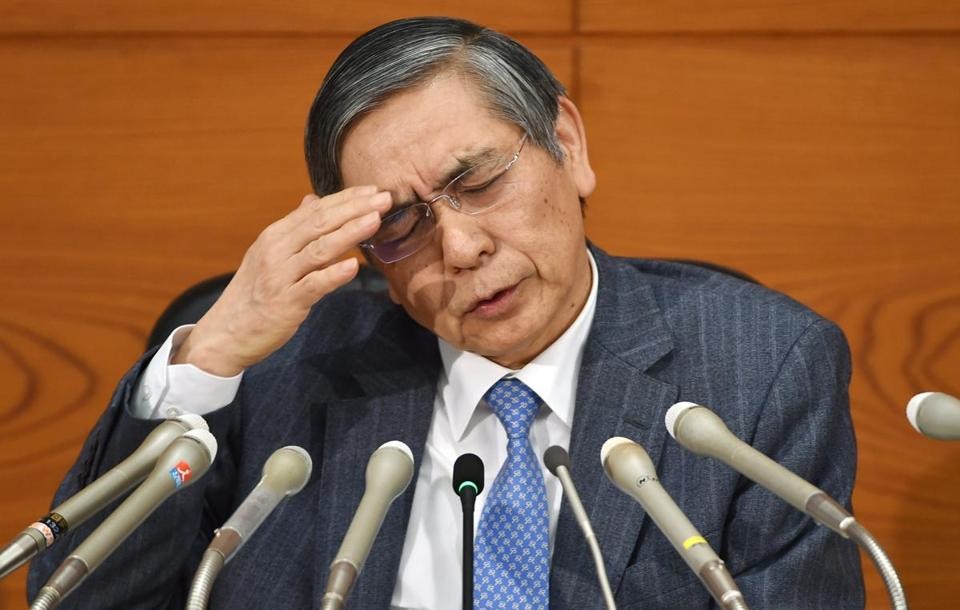Learning lessons from Japan s lost decade The Globe and Mail
Post on: 28 Июль, 2015 No Comment

These days there’s lots of gloomy news on the American and European economies — Friday’s Wall Street Journal had separate stories featuring polls of economists in the U.S. and Europe predicting continued high unemployment and slow growth.
Japan’s lost decade
Japan’s lost decade took place from 1991 to 2000, following a massive run up in real estate and stock prices in the 1980s. Fuelled by cheap and easy credit, the bubble burst when Japan’s central bank raised interest rates in late 1989.
As a result, corporations and consumers were left with heavy debt levels, which they focused on paying down through the 1990s. This led to a dramatic reduction in investment and spending.
This period also saw dramatic consolidation among banks and reduction in access to credit, driven in part by unprofitable zombie companies that banks kept on life support by continuing to inject funds, rather than biting the bullet and writing off the debt.
As a result, the 1990s saw virtually no economic growth in Japan, at a time when much of the rest of the world was booming; this was despite interest rates that approached zero and periodic bursts of government spending to try to restart the economy.
This led to a second lost decade starting in 2000, during which economic growth continued to be marginal — and in which government spending to try to jump-start the economy led to some of the highest debt levels in the developed world.
Krugman’s view
Over the past year, I’ve spoken to top economists in the United States and Canada — and Japan has been a frequent topic.
In January, I attended the annual meeting of the American Economics Association. Several well known economists were happy to talk about almost any topic except Japan — simply because they didn’t have answers to what had gone wrong and what should happen next.
Princeton economist and Nobel laureate Paul Krugman did go on record and expressed strong concerns.
The lesson from Japan is that the maximum estimate of how long it takes to recover from a financial crisis is forever, Krugman said. Despite cutting interest rates, Japan’s never had a real recovery. There was enough government spending to keep the economy from plunging but never enough to generate a boom. And private market forces never kicked in to allow the government to withdraw stimulus spending. A big problem is that recoveries from a financial crisis almost invariably rely on exports — in a synchronous global crisis you can’t do that, unless you start exporting to Mars.
Ferguson’s take
In May, I had a further conversation about Japan with Harvard’s Niall Ferguson, today’s best known economic historian.
He too was pessimistic about Japan.
The first problem is that government debt is now approaching 200 per cent of the country’s economic output, twice the level of U.S. and Germany. To date, Japan has been able to finance this internally at low rates, due to high savings rates by its citizens and their willingness to accept low interest levels. His view was that when Japan has to pay interest on its debts at global market levels, big problems will follow, especially if we see a slowdown in China, whose demand has been a saving grace for Japan.
Another big problem is that Japan has the oldest population among major developed countries. This has implications not only for its productivity but for its political climate — in Mr. Ferguson’s analysis, the elderly in Japan tend to vote for the status quo and are barriers to dramatic reform. This has contributed to political paralysis and a leadership vacuum in Japan.
Lessons from Japan
There are a few common themes from my conversations about Japan’s lost decades.
The first is the critical importance of strong leadership to deal with difficult issues in a forthright fashion and the willingness to make tough decisions.
Second is the necessity to maintain open markets and competition, even in the face of lobbying from businesses and their employees.
Third is the need to trade off reducing government deficits with the need to maintain some level of stimulus spending.
Which arguably leads to perhaps the most important message of all, the need to maintain confidence among consumers and business.
Yale’s Robert Shiller is widely respected for his forecasts. In a conversation in July at his office in New Haven, he said that the most important task today for political and business leaders is to inspire confidence — and that a consideration in all important decisions should be whether that decision contributes to heightened confidence.
President John F. Kennedy often used the expression those who fail to learn from history are doomed to repeat it. As policy makers look forward, Japan provides some important lessons to avoid our own lost decades.














